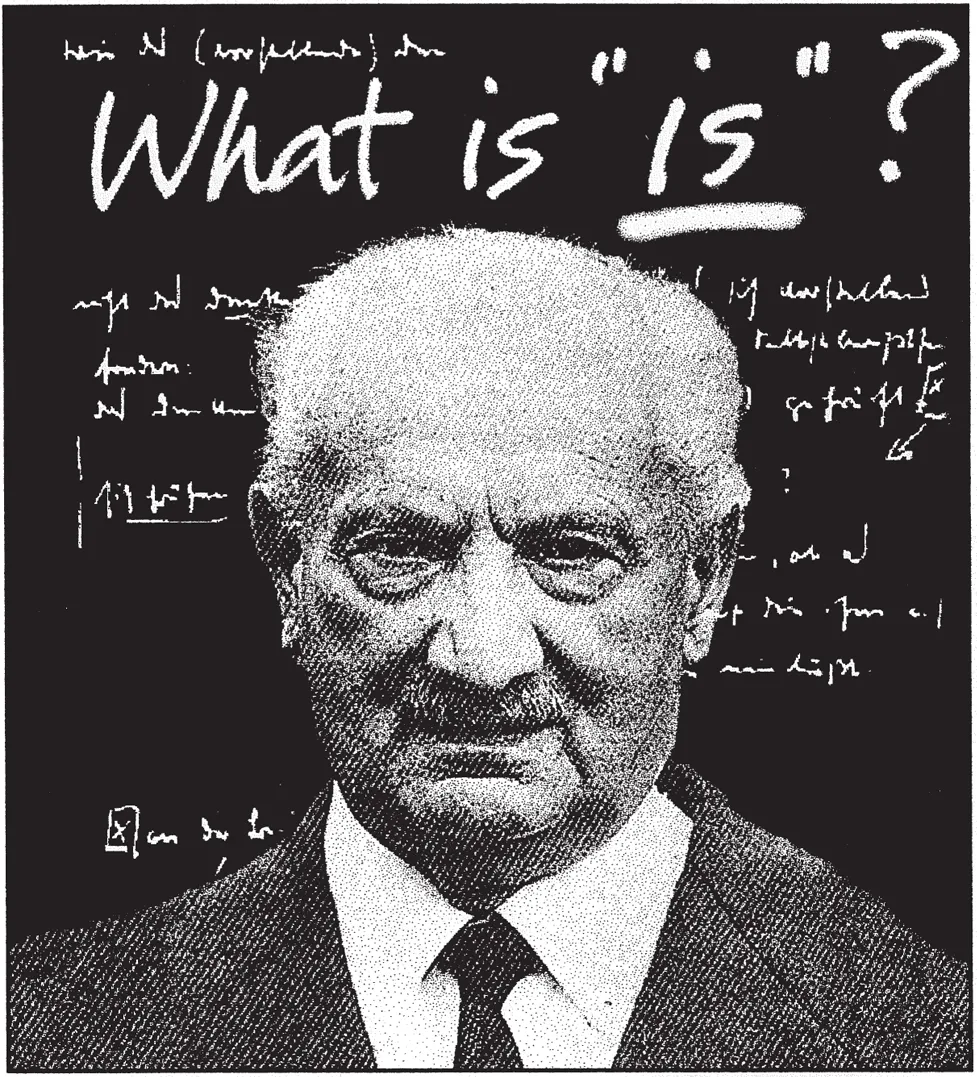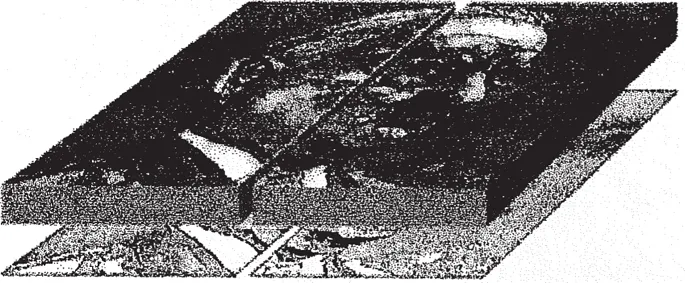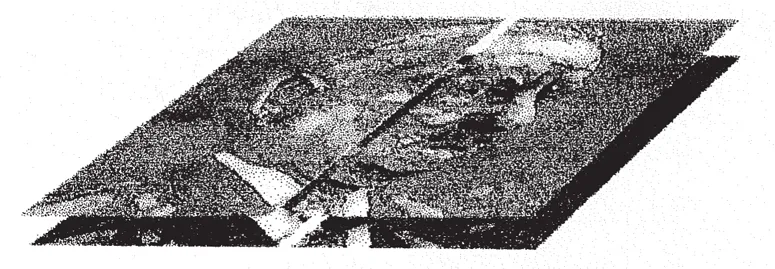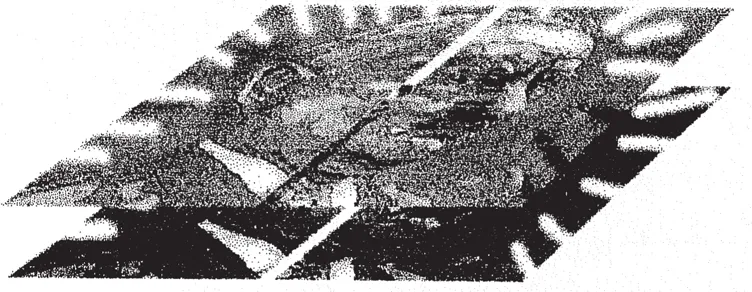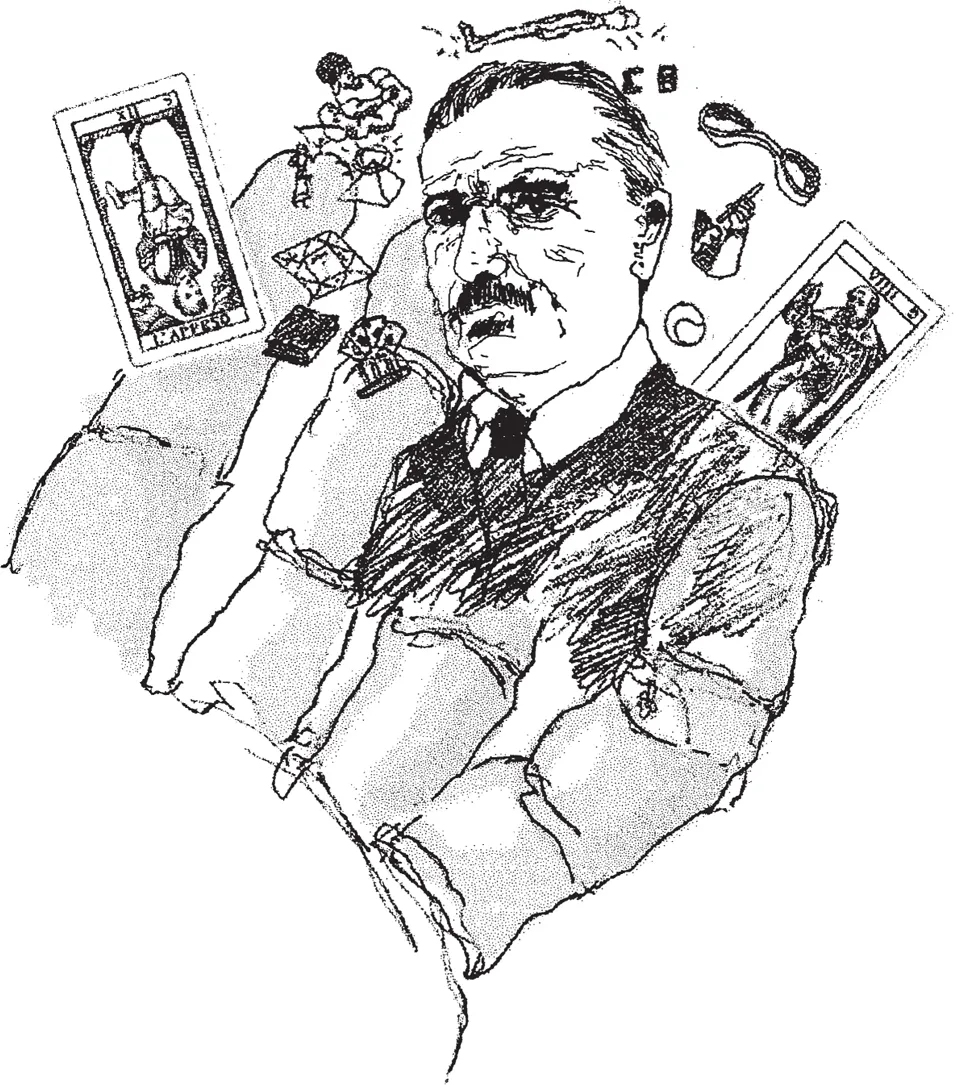![]()
BEGINNING WITH A QUESTION ...
“Is” is one of the most commonplace words in the English language. It slips into sentences almost unnoticed. It is difficult to speak, write or think without it.
But few people ask –
To the philosopher Martin Heidegger (1889–1976), that neglect was astonishing.
It is not just the neglect of a word, but of every resonance that such a word might have.
What is Being ?
“Is” is part of the verb “to be”, the verb of being. To ask “What is ‘is’?” is to ask a question of BEING. That was Heidegger’s central preoccupation.
A strange concern? Heidegger proposed something extraordinary.
Heidegger’s task: to return to the question. How could “being” be understood?
Was it possible to forge a new disposition towards “being”, redirecting the trajectories of the last two millennia?
To Heidegger, what was at stake was nothing less than Western thought as it has been known – not only its philosophy, but its natural sciences, its human sciences, its everyday discourses.
To turn towards “being” meant: to turn away from their traditional concerns, to place their methods, their concepts and their underlying assumptions in question.
Few philosophers have proposed such a radical disturbance of philosophy.
It took Heidegger into some strange and contentious territories, both conservative and revolutionary, secular and theological, anti-traditional but deeply rooted, backward-looking while proposing a future thinking whose contours are still not settled.
Which Heidegger?
Unsurprisingly, the author “Heidegger” has been read in many different ways. It has often been said, there are many Heideggers.
A Heidegger of German idealist philosophy, preoccupied with abstruse but fundamental questions of time, death, and the underlying anxiety or
Angst of human living ...
A scholarly Heidegger, “central to European philosophy”, intersecting major currents of 20th century thought, interrogating philosophy’s “great traditions” ...
A theological Heidegger, taken to have offered a philosophical foundation for modern Christian thought ...
... and some Heideggers who disclaim this: one thoroughly
secular, and another of
post-theology, responding to the “death of God” while searching out what remains of religious thought in mystic traditions, Eastern religions, etc.
Against Heidegger
Not far away is a Heidegger of abstruseness, opacity, impenetrability and obscurity: the bête-noir of Anglophone “analytical” philosophy; a Heidegger of “dangerously unaccountable speculations”; of mysticisms and obfuscations; sham tautologies and self-important immersion in self-generated problems ...
The question of being? A senseless querying of what must be an absolute presupposition. If treated as a question there is no way of answering it ... Heidegger has displays of surprising ignorance, unscrupulous distortion and what can fairly be described as charlatanism.
British analytic philosopher A.J. Ayer in 1982
Heidegger’s writings contain the last despairing glimmer of German romantic philosophy. His major work Being and Time is formidably difficult – unless it is utter nonsense, in which case it is laughably easy. I am not sure how to judge it, and have read no commentator who even begins to make sense of it.
British conservative philosopher Roger Scruton in 1992
For Heidegger
Heidegger has been interpreted more positively.
... the rescuer of PHENOMENOLOGY (a philosophy of
consciousness) from its own self-constructed limits.
... contributor to modern HERMENEUTICS (the philosophical inquiry into how we make
interpretations), crucial to the key hermeneutic theorist, Hans-Georg Gadamer.
... the most profound influence on 20th century EXISTENTIALISM and major figures like Maurice Merleau-Ponty and Jean-Paul Sartre.
... a POST-STRUCTURALIST Heidegger, coming before the name, anticipating the most innovative developments in philosophy and theory in recent decades – and a powerful formative influence even on thinkers who took other paths.
... And a Heidegger of DECONSTRUCTION, providing the most important resource for its leading proponent, Jacques Derrida.
A Social Heidegger
There are Heideggers of social and cultural critique ...
The Heidegger opposed to the conditions of MODERN INDUSTRIAL SOCIETY, its “mass” culture and technological modes of thought ...
... correspondingly, a Heidegger of conservative RURALISM, rooted in a vision of the “agrarian past”; its traditional modes of life and its assured lore and customs ...
A proto-ECOLOGICAL Heidegger, offering a platform for “deep ecology”: ways of thinking other than those of “exhaustive extraction and relentless appropriation” ...
A Future Heidegger
There are figures of the...





